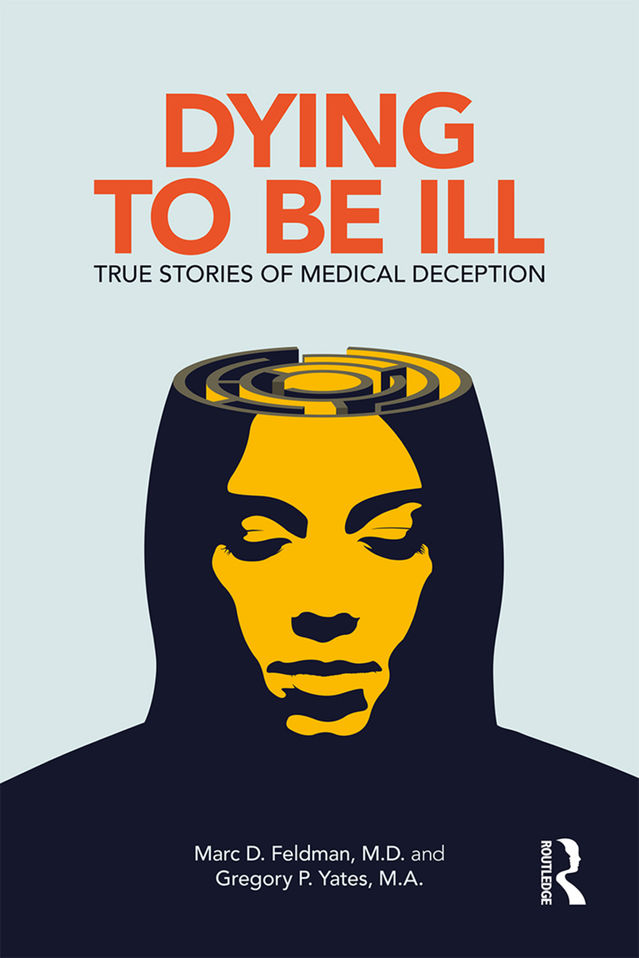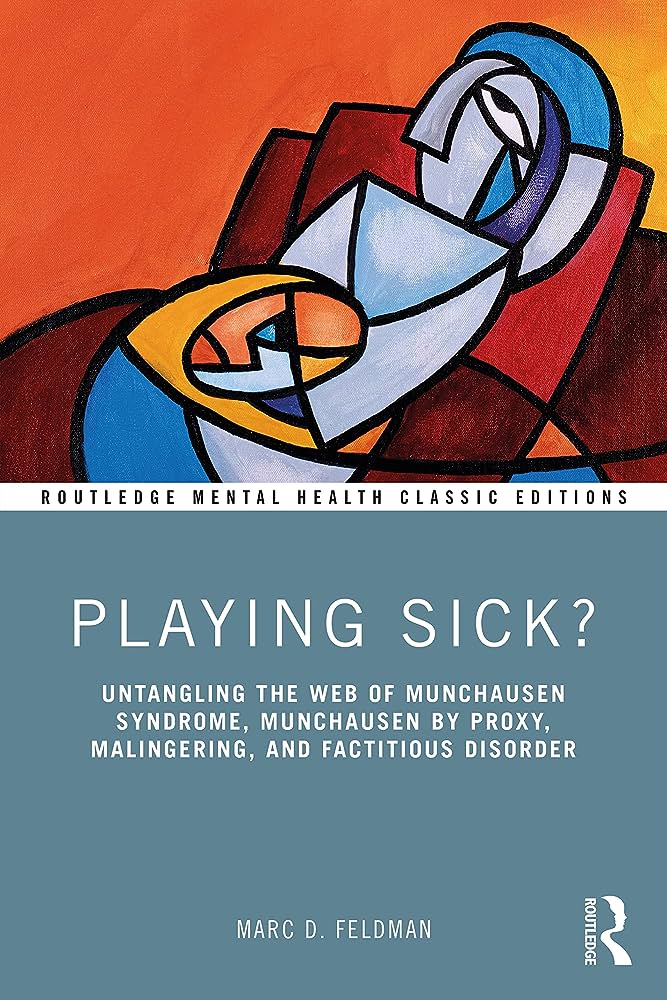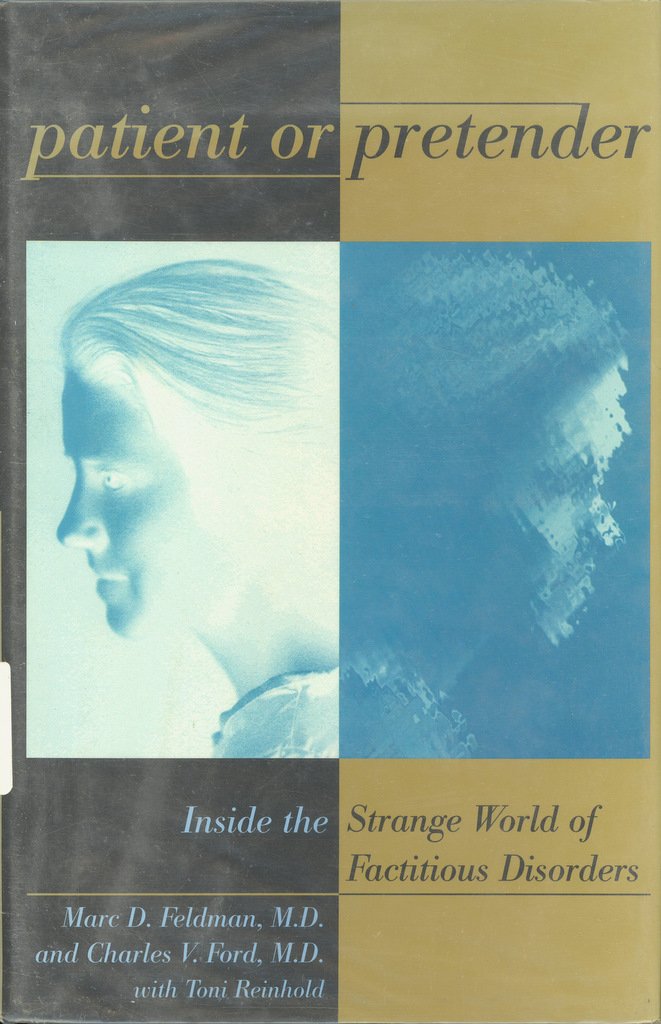Books by Dr. Feldman
I am pleased to present my newest book, Dying to Be Ill: True Stories of Medical Deception. It is truly an unprecedent book drawn from my 25+ years of studying such daunting diagnoses as factitious disorder, Munchausen by proxy (medical child abuse), and malingering.
A number of child abuse experts contributed personal narratives of their thoughts and experiences dealing with these phenomena. These accounts supplement dozens from patients, family members, friends, law enforcement, educators, nurses, therapists, MBP survivors, and still others. This range reflects the fact that these problems continually present to the public and to professionals, and so all should be not only aware, but knowledgeable.
Throughout the book, commentary presents the state-of-the-art information about these elusive problems. The book is available at many bookstores and from the online booksellers.
This is a spellbinding invitation into the world of the human mind that will change our perceptions of mental illness forever. Despite the growing body of scientific discoveries into the nature of the human mind, the stigma attached to mental illness remains deeply entrenched in the general public’s consciousness, the product of inaccurate information and centuries of mystery.
In a simple conversational style, two distinguished clinicians, Drs. Marc and Jacqueline Feldman, discuss the complexities of mental disorders and their treatment. Using the metaphor of the lie of the mind, a disorder in which a person’s thinking becomes unintentionally distorted, the authors approach mental illness from the perspective that these disorders are merely extreme variations of universally shared thoughts, feelings, and behaviors. Stranger Than Fiction removes the artificial division separating the mentally ill from the general public and demystifies symptoms that often seem bizarre.
As children, most of us played sick at one time or another to get our parents’ sympathy and attention. In Patient or Pretender, psychiatrists Marc Feldman and Charles Ford take us into the strange world of people who take the game of playing sick to pathological, sometimes fatal, extremes. Driven by the need for attention, these people manufacture physical and psychological symptoms, often injuring themselves to get medical treatment. And, in the process, these “great pretenders” mislead and victimize their families and friends, baffle physicians, and wantonly consume precious medical resources.
Meet Jenny, the secretary who feigned breast cancer and went so far as to shave her head, lose weight, and even join a cancer support group. Then there is the mother who suffocated her own child so she could play the role of martyred parent. These compelling case studies read like medical detective stories, as doctors try to separate fact from fiction and explore the real causes of their patients’ illnesses. Along the way, Drs. Feldman and Ford offer us insights, not only into the workings of desperate minds, but the human condition in general.
Factitious disorder presents one of the most challenging variants of psychopathology in medicine. The Spectrum of Factitious Disorders is the first book for professionals to offer a comprehensive overview of current thinking about patients who feign or induce illness — in themselves or others — to accrue the intangible benefits of the “sick” role.
Attempts to influence factitious patients’ behavior have been largely unsuccessful. This volume covers innovative techniques for treating such patients, stressing the need to treat them with acceptance and understanding. First-person accounts are used to illustrate the intense feelings mobilized in friends, family members, caregivers, and patients themselves as factitious disorders play out. The book also presents a management approach that emphasizes respect for the patient, no matter what the symptomatology.
Using abundant case material, this revolutionary work aids mental health practitioners in understanding the phenomenon of “disease-forgery” and addresses its inherent management challenges. Notable contributors provide relevant information on ethical and legal issues in factitious disorders. The clinical features, detection, and management of factitious disorder by proxy are explored, along with comprehensive psychosocial assessment and legal issues in such cases.





